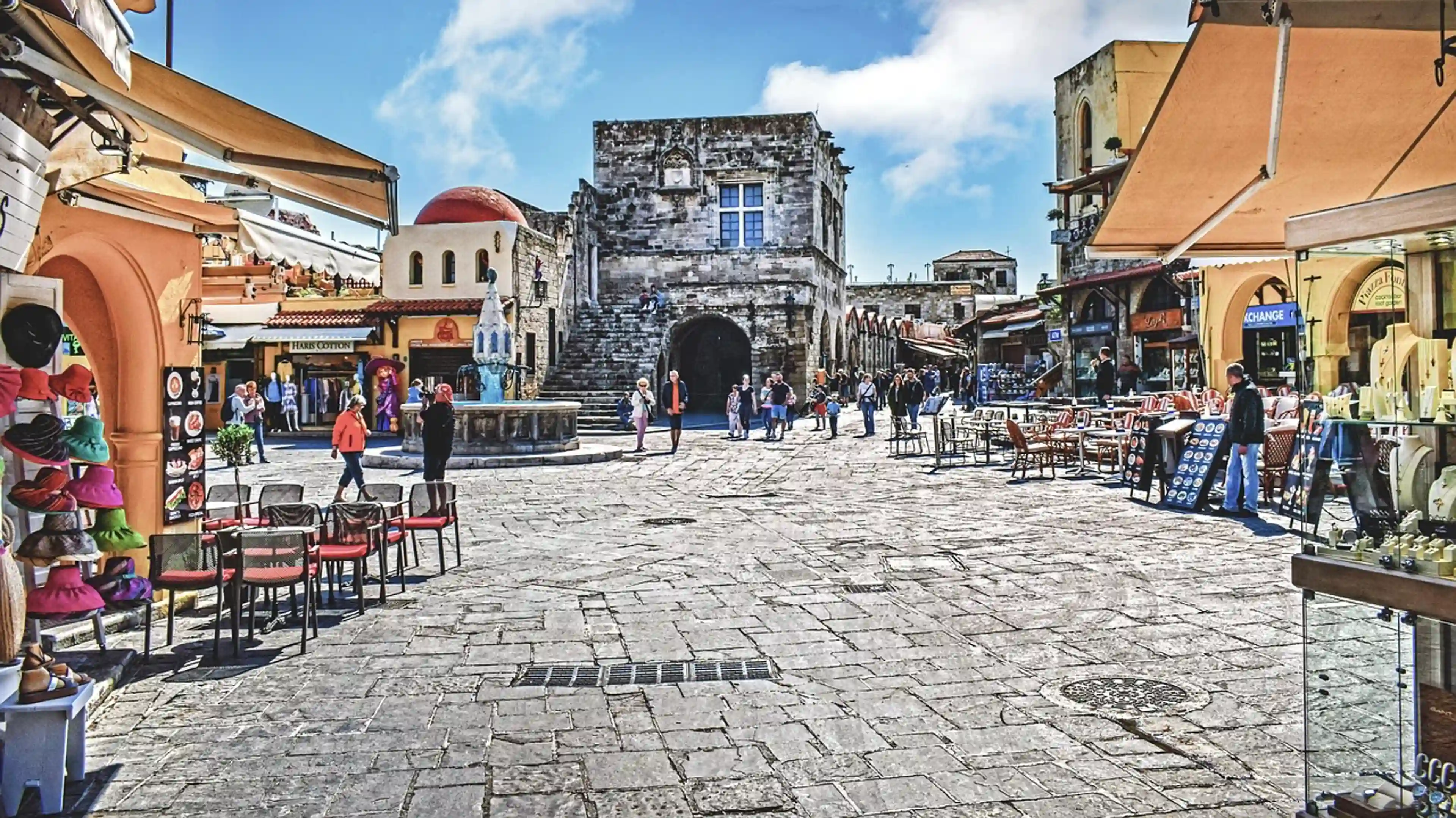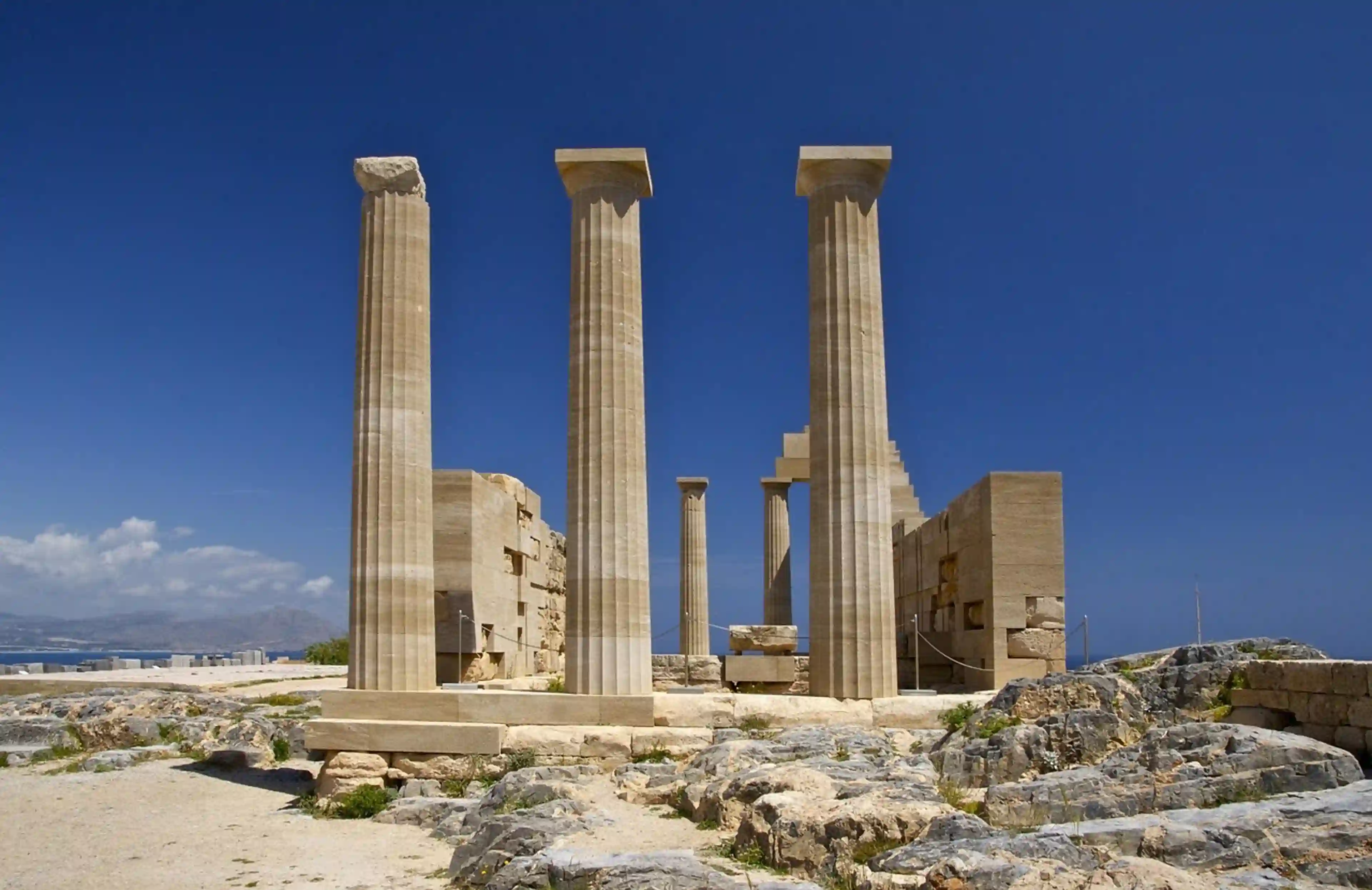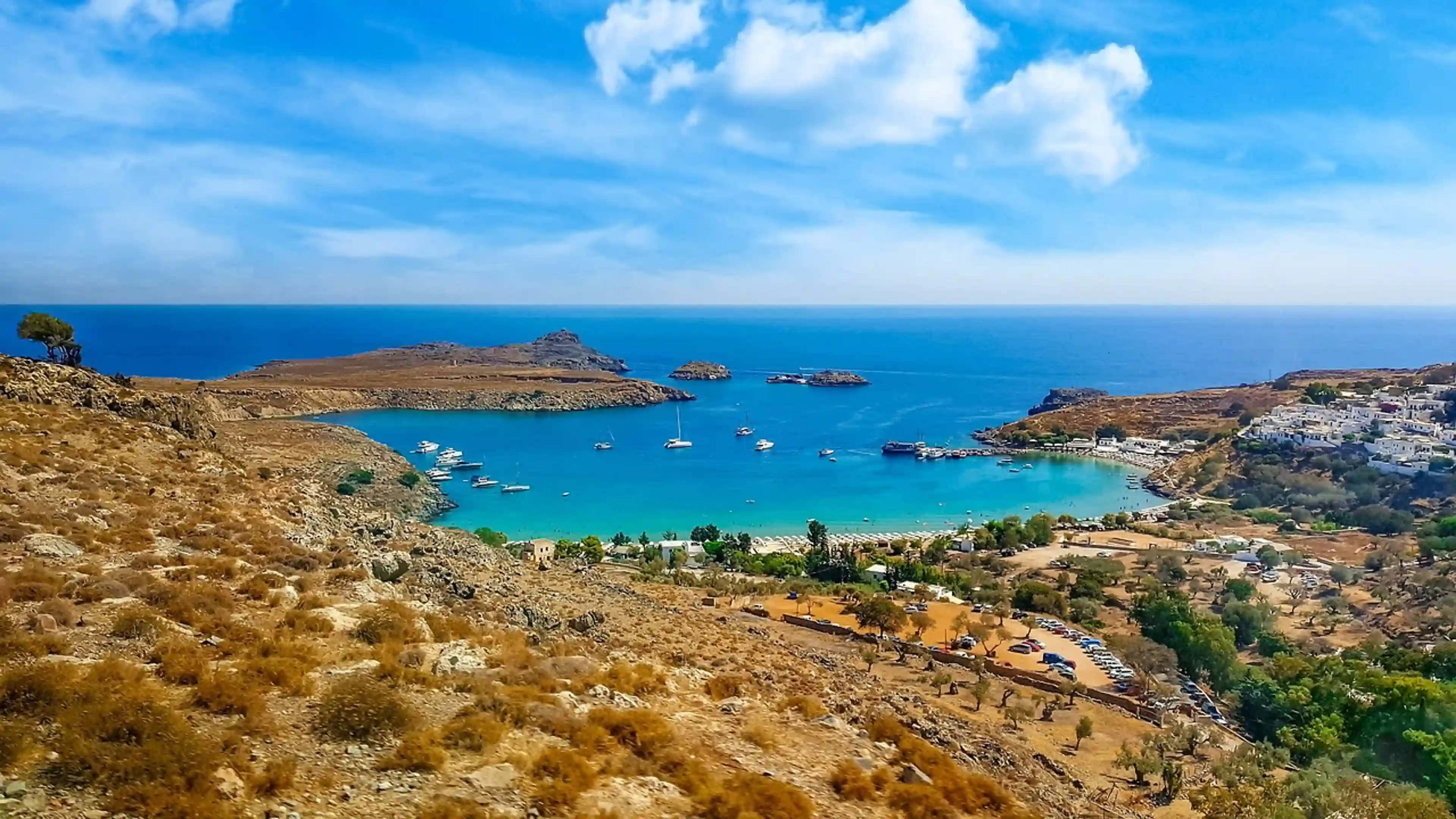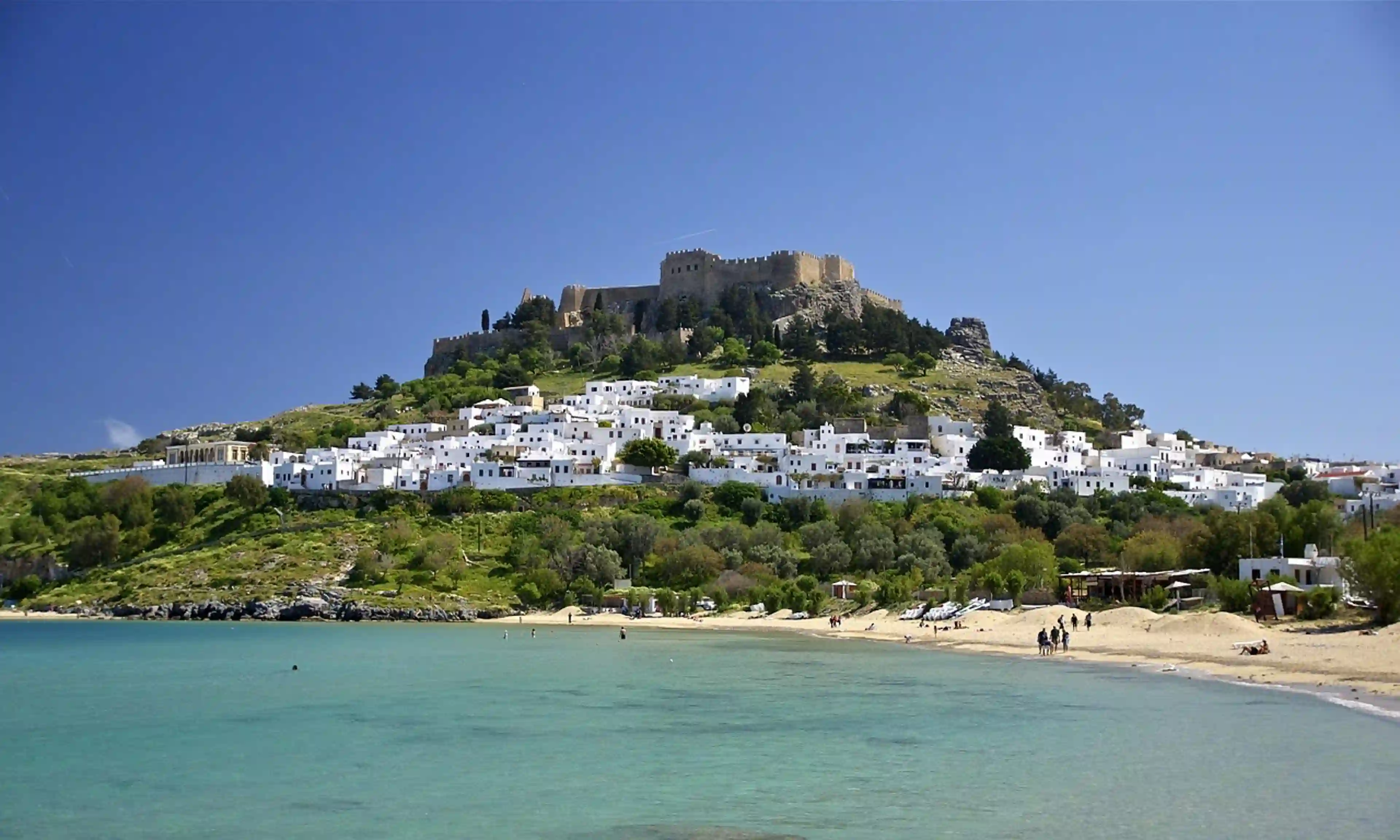Rhodes
General presentation
Top 50
History, culture & traditions
Travel advice
Wikipedia
Viator activities
Tiqets activities
Global presentation
Rhodes stands majestically as the largest island in the Dodecanese archipelago, offering a fascinating journey between millennia of history and beach pleasures. This exceptional destination appeals with its outstanding heritage, including the UNESCO World Heritage-listed medieval old town and the remnants of the legendary Colossus, one of the seven wonders of the ancient world. With remarkable archaeological sites, dream beaches, and a privileged climate, the island offers a complete and varied tourist experience.
Geographical situation
The island occupies a strategic position in the Aegean Sea, just 18 kilometers from the Turkish coast. Covering 1,398 km², it measures 78 kilometers in length and 38 kilometers in width. Its privileged location between the Aegean Sea and the Mediterranean, which borders its southeast facade, gives it a unique geographical character at the crossroads of Europe and Asia.
Atmosphere and character
The Rhodian atmosphere reveals a multifaceted personality. The medieval old town, with its cobbled streets winding between imposing fortifications, harmoniously interacts with contemporary seaside resorts and preserved traditional villages. This architectural and cultural diversity creates an enchanting setting that satisfies both history enthusiasts and beach relaxation lovers, not to mention those seeking a vibrant nightlife.
Climate
The island's Mediterranean climate ensures ideal conditions year-round. Summers are characterized by dry heat with temperatures around 30°C, while winters remain remarkably mild with temperatures rarely falling below 15°C. The exceptional sunshine, totaling about 300 sunny days annually, makes this destination a true paradise for sunshine lovers.
Best season to visit
The optimal period extends from April to October, with each season offering its own advantages:
- Spring (April to June): mild temperatures and blooming nature
- Summer (July-August): peak season with intense heat and high attendance
- Autumn (September-October): still warm sea and more moderate crowds
This wide window allows travelers to adapt their stay according to their preferences in terms of tranquility, weather conditions, and available activities.
Access
Diagoras International Airport, located 14 kilometers southwest of the main city, serves as the main air gateway with regular domestic connections and seasonal international flights. Maritime connections provide an attractive alternative with regular ferries from Piraeus (Athens) and to other Greek islands. Connections also exist with Turkey, notably to Marmaris, enriching access possibilities.
Internal transport
The public transport network relies on an efficient bus system, with regular departures from the Nea Agora bus station to the main island destinations. Taxis complement this offering, though their availability may be limited during the peak tourist season. For exploration at one's leisure, vehicle rental (cars or scooters) is the preferred option for many visitors wishing to discover the island at their own pace.
Top 50
Wikipedia
Viator activities
Tiqets activities



